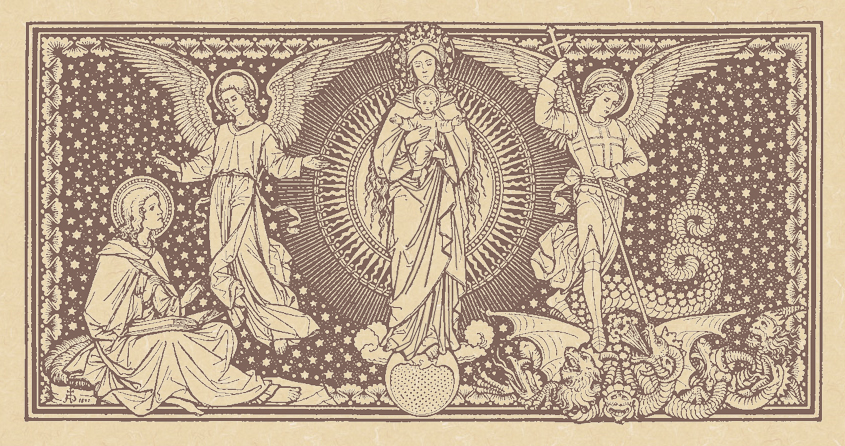Keep Your Eyes on the Prize.
The Second Saturday of Lent.*
Lessons from the feria, according to the ordinary form of the Roman Rite:
• Deuteronomy 26: 16-19.
• Psalm 119: 1-2, 4-5, 7-8.
• Matthew 5: 43-48.
Ember Saturday of Lent.**
Lessons from the feria, according to the extraordinary form of the Roman Rite:
• Deuteronomy 26: 12-19.
• [Gradual] Psalm 78: 9-10.
• Deuteronomy 11: 22-25.***
• [Gradual] Psalm 83: 10, 9.
• II Machabees 1: 23-27.
• [Gradual] Psalm 89: 31, 1.
• Ecclesiasticus 36: 1-10.
• [Gradual] Psalm 140: 2.
• Daniel 3: 47-56.
• [Hymn] Daniel 3: 52-56.
• I Thessalonians 5: 14-23.
• [Tract] Psalm 116: 1-2.
• Matthew 17: 1-9.
The Second Saturday of the Great Fast; and, the Second All Souls Saturday.†
First & third lessons from the triodion, second & fourth from the menaion for the dead, according to the Ruthenian recension of the Byzantine Rite:
• Hebrews 3: 12-16.
• I Thessalonians 4: 13-17.
• Mark 1: 35-44.
• John 5: 24-30.
FatherVenditti.com
|
 8:44 AM 3/11/2017 — I didn't preach at Holy Mass yesterday not only because the snow scared a lot of people away, but because yesterday’s Gospel lesson and today's constitute two parts of the same thematic passage, in which our Lord gives us his familiar declaration wherein he replaces a moral dictum of the Old Testament, such as “an eye for an eye,” with his own unyielding precept, usually precipitated with the formula: “You have heard it said … but I say ….” In this particular case it's the one about how we should react to our enemies. But, included in his precept about loving ones enemies is the all too forgotten statement that God “makes his sun rise on the bad and the good, and causes rain to fall on the just and the unjust” (Matt. 5: 45 RM3). 8:44 AM 3/11/2017 — I didn't preach at Holy Mass yesterday not only because the snow scared a lot of people away, but because yesterday’s Gospel lesson and today's constitute two parts of the same thematic passage, in which our Lord gives us his familiar declaration wherein he replaces a moral dictum of the Old Testament, such as “an eye for an eye,” with his own unyielding precept, usually precipitated with the formula: “You have heard it said … but I say ….” In this particular case it's the one about how we should react to our enemies. But, included in his precept about loving ones enemies is the all too forgotten statement that God “makes his sun rise on the bad and the good, and causes rain to fall on the just and the unjust” (Matt. 5: 45 RM3).
We often allow this particular phrase to pass us by because it just doesn't sound right to us. It offends our sense of justice. Those who do good should be rewarded, and those who do evil should be punished; that's how we've been raised to think. Our Lord is not challenging that; he's simply pointing out that reward and punishment do not come in this life, they come in the next. That's hard to wrap our brains around because, despite our Catholic upbringing, we live in a Protestant society, where faithfulness to God is rewarded here on earth. That's why all the Evangelical preachers you see on television are dressed to the nines: they need to show how prosperous they are to prove that they are blessed by God.
We don't do that because we listen to the whole of our Lord's teachings, whether its about his real Body and Blood in the Eucharist, or, as in this case, the fact that reward and punishment do not come in this life, but in the next.
Let us pray that, in our daily combat to live the Gospel every day, we will be given the grace to keep our eyes fixed on heaven as our true reward.

* Because Lent began on a Wednesday, today is the second Saturday. Cf. the post here under the heading "Hey, aren't you off by a week?" for an explanation of how the days of the liturgical calendar are rendered on this site as opposed to how they are designated in the Roman Missal.
The Saturday memorial of the Blessed Virgin is not observed during Lent.
** Cf. the second footnote attached to the post here for an explanation of the Ember Days.
The 4th class feria of the Blessed Virgin on Saturday is not observed during Lent.
*** Some editions of the Missal of St. John XXIII indicate that everything from the third lesson from Deuteronomy 11 through the hymn from Daniel 3 inclusive are optional at Low Mass. The most commonly used ordo for the extraordinary form does not mention this option. Nevertheless, it is a fact that, in the "old days," omitting some lessons on Ember Saturdays was a common practice in many parishes, which the publishers of new editions of the Missal may have presumed to have been officially sanctioned.
† Because the Great Fast began on a Monday, today is the second Saturday.
While the Western Church commemorates the Holy Souls once a year on November 2nd, the Churches of the Byzantine Tradition do so five times a year: once during the Triodion, three times during the Lenten season and once during the Paschal season, always on a Saturday; these are called the All Souls Saturdays.
The feast of our Holy Father Sophronius, Patriarch of Jerusalem, is suppressed because of the All Souls Saturday.
|

